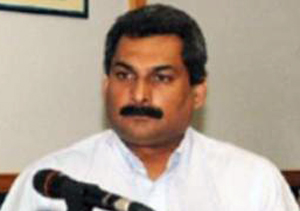
MELBOURNE (Radio Australia Pacific Beat/Pacific Media Watch): Fiji's peak trade union bodies have asked the country's media not to report what they see as one-sided pro-government news.
The Fiji Trade Union Congress and the Fiji Islands Council of Trade Unions have jointly condemned what they say is the "shutting out" of their views in the state censored media.
They have called on media outlets to either publish balanced items, or nothing at all.
FTUC general-secretary Felix Anthony says the unions are frustrated by what they see as propaganda rather than journalism.
Presenter: Bruce Hill
Speakers: Felix Anthony, FTUC general-secretary; Stanley Simpson, Fiji Broadcasting News director
ANTHONY: Reporting by the media - and in particular the Fiji Sun and Radio Fiji and, of course, Fiji TV News - has totally ignored statements by the trade unions and has gone onto a propaganda mode, just simply promoting statements by the regime. People in Fiji are simply getting one side of the story, the reporting is not balanced. It's absolutely biased and quite apart from news reporting, there's been other programmes that we have noticed, particularly on Radio Fiji, which actually go a bit further to promote the regime and we don't believe this is fair. We call for a fair media and if the media is not allowed to report fairly, then it should not become a propaganda machine for the regime either.
HILL: What is it specifically you want the media to do?
ANTHONY: To report fairly and if they are not allowed to report the trade union perspective on issues, then they should either mention that or try their level best not to give misleading news and programs to the public.
HILL: So essentially are you saying that if they can't report both sides, they shouldn't report it at all?
ANTHONY: Well yes, that could be so, but also as I've said, we've noticed that there are some media outlets that actually not only report one side of the story, but actually go a bit further to promoting the propaganda agenda of the regime.
HILL: Is it better for people to have only one side of the story or no story at all?
ANTHONY: Well, we want the people to have the truth, and if the media is unable to give that truth, then they had better not mislead people.
HILL: But Fiji Broadcasting News director Stanley Simpson says the accusations from the unions are not entirely correct. He says journalists are trying to do the best job they can - but there is government censorship and that has to be taken into account.
SIMPSON: Well, all media organisations in the country - as you know Bruce, and as Felix knows, - are working under the Public Emergency Regulations. The PER is the one that really stops us from reporting some of these issues. It's a well known fact that people like Felix, some of the stories or some of the interviews that [have] been done with him, we're not allowed by the Ministry of Information to run them.
HILL: So there is some truth to what he says?
SIMPSON: We have tried to contact, to interview Felix a number of times, ... and also [FICTU President] Daniel Urai who has just come back from Australia and New Zealand. However, our messages to the union offices in Nadi and Lautoka have not received a response. But we've spoken to people like other unionists who signed the [joint] statements like Attar Singh and Tevita Koroi. I must say that the interviews that managed to get on air were really non-controversial ones, but some of the other ones could not run. I mean it's very clear when we interview them that ... anyone who is seen by government [as possibly] breaching the Public Emergency Regulations - we tell them there's no guarantee that their interview will go on air. I mean censors come in to the newsroom and check this story or if it does manage to go online, we may get a call for it to be removed. Sometimes the reasons are given, sometimes it's not given. [They just say that] orders have been given.
HILL: What about Felix Anthony's call for news media outlets, if they can't report both sides of the story to simply not report it at all?
SIMPSON: Look, we've got to keep reporting the best we can. We need to give both sides of the story, balanced fair reporting, that's the ethics of our profession. It's not an easy situation for us, but we've got to keep reporting and I hear him say there that there is propaganda, we're promoting the government line. But in fact we report information that we feel is important to the public. This is now the government that is running the country and information that is put out is important to the people, that's what we're able to do at the moment. We do challenge it at times and what's allowed to go through, it goes through. However, at the moment, as we've said, Public Emergency Regulations [are] in place.
(cc) Creative Commons



